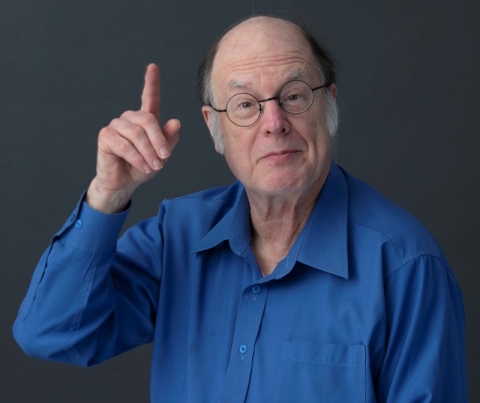Charles H. Bennett
Notice: We are in the process of migrating Oral History Interview metadata to this new version of our website.
During this migration, the following fields associated with interviews may be incomplete: Institutions, Additional Persons, and Subjects. Our Browse Subjects feature is also affected by this migration.
We encourage researchers to utilize the full-text search on this page to navigate our oral histories or to use our catalog to locate oral history interviews by keyword.
Please contact [email protected] with any feedback.

Credit: IBM
Usage Information and Disclaimer
This transcript is based on a tape-recorded interview deposited at the Center for History of Physics of the American Institute of Physics. The AIP's interviews have generally been transcribed from tape, edited by the interviewer for clarity, and then further edited by the interviewee. If this interview is important to you, you should consult earlier versions of the transcript or listen to the original tape. For many interviews, the AIP retains substantial files with further information about the interviewee and the interview itself. Please contact us for information about accessing these materials.
Please bear in mind that: 1) This material is a transcript of the spoken word rather than a literary product; 2) An interview must be read with the awareness that different people's memories about an event will often differ, and that memories can change with time for many reasons including subsequent experiences, interactions with others, and one's feelings about an event. Disclaimer: This transcript was scanned from a typescript, introducing occasional spelling errors. The original typescript is available.
Preferred citation
In footnotes or endnotes please cite AIP interviews like this:
Interview of Charles H. Bennett by David Zierler on November 24, 2020,
Niels Bohr Library & Archives, American Institute of Physics,
College Park, MD USA,
www.aip.org/history-programs/niels-bohr-library/oral-histories/47110
For multiple citations, "AIP" is the preferred abbreviation for the location.
Abstract
Interview with Charles H. Bennett, IBM Fellow and Research Staff Member at the Thomas J. Watson Research Center, IBM Corporation. Bennett recounts his childhood in the Hudson Valley, and he describes his exposure to the earliest versions of computers. He explains that his first interest as an undergraduate at Brandeis was in biochemistry, and how his focus shifted to chemical physics by the time he became a graduate student at Harvard where he studied under David Turnbull. Bennett discusses his postdoctoral research with Aneesur Rahman at Argonne National Laboratory and his growing interest in using computers for data analysis. He describes the opportunity that led to his job offer at IBM and he surveys the field of quantum information in its earliest formation. Bennett discusses his involvement in quantum cryptography and its relation to the uncertainty principle. He explains the origins of quantum teleportation, and he reflects on some of the central mysteries of quantum mechanics. Bennett discusses his work on entanglement distillation, and he describes some of the early naysaying about quantum computation. He surveys his more recent interests in the quantum reverse Shannon theorem and rediscovering rate distortion theory. At the end of the interview, Bennett puts some of the “buzz” regarding quantum computing in historical perspective and he explains his interest in applying mathematical models to understand questions about equilibrium in cosmology.
The interviewee has not given permission for this interview to be shared at this time. Transcripts will be updated as they become available to the public. For any questions about this policy, please contact [email protected].
